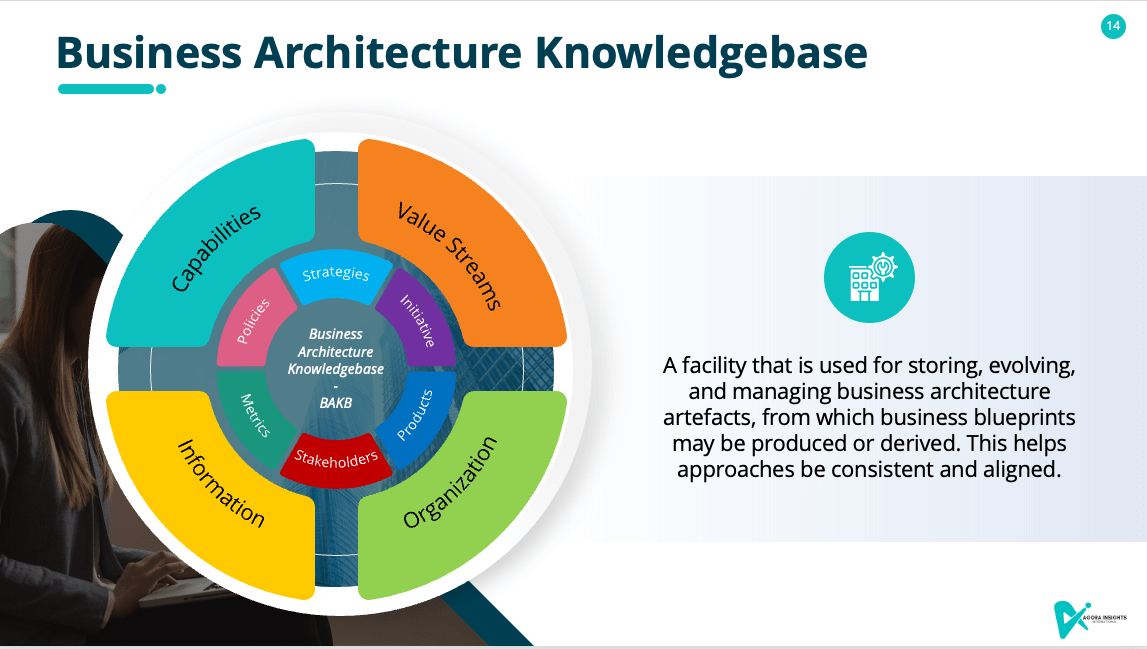In this webinar recording, hosted by the IIBA New Zealand Chapter, Deirdre Caren shares information regarding the advantages for Business Analysts learning more about Business Architecture.
Thank you - IIBA NZ
Business Architecture is a blueprint of the enterprise that provides a common understanding of the organization, and is used to align strategic objectives and tactical demands.
Overview
Everyone, from strategic planning teams to implementation teams, can use business architecture to address challenges and meet business objectives. This is due to the fact that business architecture provides blueprints and other artefacts that guide strategy to execution while also enabling core capabilities, value streams, and an architectural knowledge base.
Business Architecture is a business language and framework that is used at the enterprise level to structure a company. This includes what it does and what it needs to do in order to achieve its goals.
Why business architecture?

As Daniel Lambert correctly observes. We'd be in a much better place if there was a good business architecture practise in place to help business analysts describe requirements, epics, and user stories, rather than just trying to find quality information all the time. Business change and growth is highly likely to be unpredictable, but organisations and the people who work for them will be able to adapt and take advantage of opportunities if they have strong business architecture skills.
What do business architects do?

A excellent business architect acts as the glue that holds diverse aspects of an organisation together and is at the forefront of business transformation and digital enhancement.
A business architect will act as a link between business and technology, create business blueprints and other artefacts, guide strategy to execution, and facilitate the enablement of core capabilities, value streams and an architectural knowledge base.
A business architect collaborates with senior leadership teams, enterprise architects, business strategists, product (service) owners, business analysts and technologists to provide various business architecture blueprints and insights.
Essentially business architects are the conduit of information to knowledge to allow business to make great decisions.
Essential skills for business analysts to have when transitioning

If you want to move into the role of business architect, you need to have some core skills that match the needs of the position. These are:
- Think big picture
- Transform requirements and context into a design or concept.
- Communicate at multiple levels in the organisation
- Deliver tactical outcomes (short term), which simultaneously provide immediate value and contribute to achieving the business strategy (long term)
- A high tolerance for ambiguity and uncertainty,
- Suppress unnecessary detail to provide higher level views.
- Think in long time frames over multiple years.
- Ability to interact with people at the executive level.
- Consider multiple scenarios or outcomes.
- Lead and direct change in organizations.
Summary
Whether you want a career shift into Business Architecture, or just widen your knowledge base, the field of Business Architecture and the theory behind it provides great insights for Business Analysts.
Check out our website for related certification courses
References
- YouTube, Introduction to Business Architecture - IIBA New Zealand Chapter
- Daniel Lambert
- Agora Insights Business Architecture Programme
- Agora Insights BA to BArch Introductory Course

Post a Comment